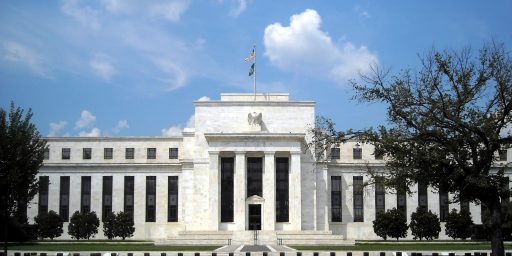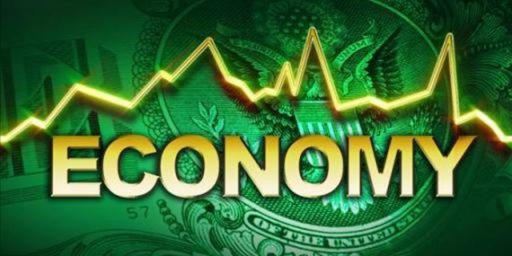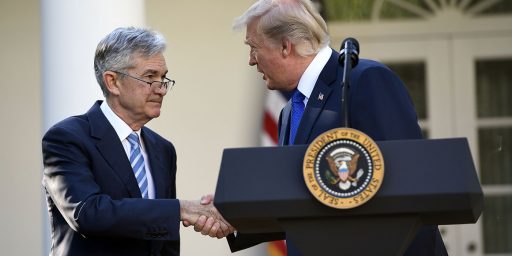Questions That Answer Themselves
When the headline tells the story.

The top-trending story at the Washington Post at the moment, if one assumes their sidebar ranking accurate, is headlined “Why the Fed’s only Democrat could unseat the current chair.”
Is there anyone who reads the Washington Post who doesn’t instinctively know the answer to that question?






Well, I rarely read the WaPo but I wouldn’t blame that lack for my inability to answer the question. I blame my ignorance of how the Fed operates.
@OzarkHillbilly: The Prez gets to name the Chair and Vice Chair from amongst the current board members, so if somebody is already on the board it is simple for Joe to name them. They need Senate confirmation but in theory the D’s still have enough folks to pull that off, with Kamala’s tie-breaker.
At least that is my understanding. Also kinda impressed I remembered that. Unless I remembered it wrong in which case I am slightly less impressed.
Well, I’m an ignorant Brit with little knowledge of how the Fed works, but on the basis that I do know it’s chairman is nominated by the President (and confirmed by Congress, I assume, that being the usual US approach) then:
“Democrat President may nominate and Democrat Congress might confirm a Democrat as Chairman.”
Well, yes, how utterly astonishing that would be… 🙂
(Though personally I’d bet on Powell continuing, so as to soothe the markets)
I’m not sure how it matters any more. Even FG is not likely to name someone completely incompetent and whoever makes the pick is going to pick a corporatist. And in this case, that’s not a horrible thing. And pretty unavoidable in any event.
@JohnSF:
There is a long history of Presidents, renominating Fed chairs that are from the other party. Trump is the first in my memory that didn’t and nominated Powell. By both Dems and R’s Powell was considered eminently qualified and it shouldn’t surprise anyone if Biden renominates him.
@Just nutha ignint cracker:
Indeed TFG did try naming several crackpots, Herman Caine, Steven Moore and Judy Shelton come to mind. Caine and Moore withdrew and Shelton failed to garner senate approval.
I’d add: one aspect of America that strikes most British as really odd is the public declaration of formal party allegiance.
A Bank of England board member could be a member of a party, or informally known to be inclined to support one, as long as they were not too noisy about it.
And subject to limits on their activity (as is the case for most civil servants, though of late the “SpAd’s” honour this more in the breach.)
But no one who was not a party member would be expected to declare themselves as a supporter.
It’s just a very different approach to political activity.
Related perhaps to the way in the US parties are often publicly regulated, to an extent, and even required to be “open”.
Whereas in the UK, and most of Europe IIRC, political parties are private and self-regulating associations.
I mean, I would think the answer would be obvious, but we learned last year that Biden can’t just replace DeJoy as Postmaster General, so… *shrug*